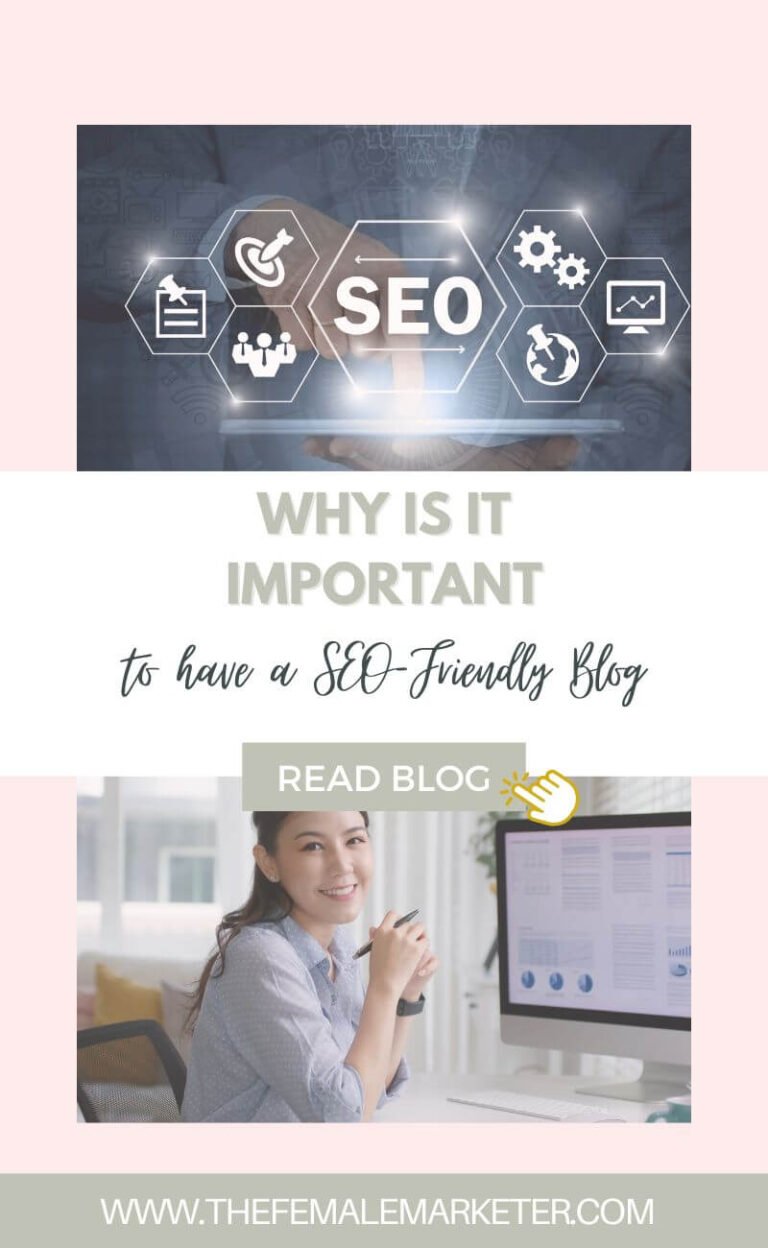In today’s digital age, Search Engine Optimization (SEO) has become a crucial tool for bloggers looking to boost their online presence. Essentially, SEO involves using various techniques and strategies to make your website or blog more visible and attractive to search engines like Google. Think of it as giving your blog a helping hand to stand out in the crowded online marketplace.
Imagine your blog as a little shop in a bustling city. Without SEO, it’s like having a beautiful storefront hidden away in a back alley where no one can find it. Sure, you might have the best products (or in our case, content) in town, but if nobody knows you exist, what’s the point?
That’s where SEO comes in. By optimizing your blog with the right keywords, tags, and other tricks, you’re essentially putting up flashy signs and billboards all over the internet, directing traffic straight to your doorstep. It’s like saying, “Hey, Google, look at me! I’ve got something awesome to share!”
And why does SEO matter so much for us bloggers? Well, think about all the time and effort we put into crafting our posts. We want people to read them, right? Without SEO, our amazing content might as well be sitting in a dusty old journal under our bed. But with the power of SEO, we can increase our chances of getting noticed, attracting more readers, and growing our online community.
Disclaimer: I include affiliate links in my articles. Clicking on these links and making a purchase might earn me a commission without any additional cost to you. I value transparency—find more details in my Affiliate Disclaimer.
Better Visibility and Higher Ranking on Search Engines
One of the primary goals of SEO is to improve the visibility of a website or blog on search engines. When your blog ranks higher on search engine results pages (SERPs), it’s more likely to catch the eye of users who are searching for what you have to offer.
Why does this matter? Well, think about your browsing habits. When was the last time you clicked on a link that wasn’t on the first page of Google? Exactly. Most people don’t bother scrolling past those initial results. Studies show that over 70% of all clicks go to those top-ranking pages, so landing on that first page is like striking gold for bloggers.
So, how do you get there? It’s all about optimizing your content with the right keywords, making sure your posts are high quality, and building up those all-important backlinks. Add excellent user experience and fast website loading times, and you’ve got yourself a recipe for success in the digital world.
Increased Traffic and Engagement on Your Blog
Let’s talk about something every blogger dreams of – more traffic and engagement on your blog. SEO isn’t just about getting your blog to rank higher on Google; it’s about bringing in those eager readers who are actively seeking out what you have to offer.
SEO not only helps drive traffic to your blog but also improves engagement with your audience. When users find your blog through search engines, they are more likely to spend time reading your content. Thus, they are more likely to leave comments and share your blog with others. This increased engagement can lead to a loyal following and a community of readers who regularly visit and interact with your blog.
To improve engagement on your blog, it is important to create high-quality, informative, and engaging content. This should resonate with your target audience. By optimizing your content for relevant keywords and valuable information, you attract and retain readers who genuinely are interested in what you have to say.
Improved User Experience and Navigation
SEO not only focuses on optimizing a website for search engines but also for users. By improving the user experience of your blog, you can enhance its overall performance. Thus, you can increase its chances of ranking higher on search engine results pages.
A good user experience is crucial for the success of any blog or website. Users visiting your blog expect it to load quickly, be easy to navigate, and provide them with the information they are looking for. If your blog fails to meet these expectations, users are likely to leave and look for alternatives.
SEO helps improve user experience by optimizing various aspects of a website. For example, its loading speed, mobile-friendliness, and overall usability. If your blog is user-friendly and provides a seamless browsing experience you increase the chances of users staying on your site longer. Thus, exploring more pages, and engaging with your content.
Enhanced Credibility and Authority in Your Niche
In the world of blogging, credibility and authority are essential for building a loyal audience and establishing yourself as an expert in your niche. SEO can increase your blog’s credibility and authority through improved visibility, ranking, and online presence.
When your blog ranks higher on search engine results pages, it gives the impression that your content is trustworthy and relevant. Users tend to associate higher rankings with credibility, as search engines are seen as unbiased sources of information. By consistently producing high-quality content that is optimized for search engines, you can build trust with your audience. Thereafter, you can establish yourself as a credible source of information in your niche.
Having credibility and authority in your niche is important because it helps attract more readers, increase engagement, and build a loyal following. When users trust your blog and see you as an expert in your field, they are more likely to share your content, recommend your blog to others, and become regular readers.
Cost-Effective Marketing Strategy for Your Blog
Long-Term Benefits and Sustainability of Your Blog
SEO offers long-term benefits, ensuring your blog’s sustainability. Unlike short-term marketing tactics, SEO builds a strong foundation for your blog, ensuring long-term sustainability and resilience to algorithm and trend changes. Other marketing strategies may provide short-term results, meanwhile, SEO focuses on building a strong foundation for your blog that can withstand changes in search engine algorithms and trends.
Effective SEO strategies help you create high-quality, informative content optimized for organic traffic. This means your blog posts can attract readers for months or years to come.
SEO also helps ensure the sustainability of your blog by providing a steady stream of organic traffic. While paid advertising can be effective in driving immediate traffic to your blog, it is not sustainable in the long run. Once you stop investing in paid advertising, the traffic to your blog will likely decrease. On the other hand, with SEO, you can continue to attract organic traffic without having to rely on paid advertising.
Competitive Advantage and Differentiation from Other Blogs
In today’s saturated blogging landscape, standing out from the competition is crucial for success. SEO can provide bloggers with a competitive advantage by helping them differentiate their blogs from others in their niche.
By implementing effective SEO strategies, bloggers can optimize their content for relevant keywords and target specific audience segments. This allows them to attract readers who are actively searching for information or content related to their niche. Thus, increasing their chances of standing out from the competition.
SEO also helps differentiate your blog by improving its overall quality and user experience. When users visit your blog and find it easy to navigate, informative, and engaging, they are more likely to stay longer and explore more pages. This increased engagement sets your blog apart from others that may not provide the same level of quality or user experience.
Targeted Audience and Relevant Content Delivery
Let’s talk about another great aspect of SEO – the ability to reach your audience and deliver relevant content. By optimizing your blog for specific keywords and targeting specific audience segments, you attract readers who are genuinely interested in what you have to say.
When users search for information or content related to your niche, they are more likely to find your blog if it is optimized for relevant keywords. This means that the traffic you receive from search engines is more likely to be highly targeted and interested in your content.
By delivering relevant content to your target audience, you can increase engagement. Thereafter, you can build a loyal following, and establish yourself as an authority in your niche. When users find your blog through search engines and find the information or content they are looking for, they are more likely to stay longer, explore more pages, and engage with your content.
Measurable Results and Performance Tracking for Your Blog
Another advantage of SEO is that it provides measurable results and allows you to track the performance of your blog. Traditional advertising methods may not provide accurate data on the effectiveness of your campaigns. In contrast, SEO allows you to monitor and analyze various metrics to determine the success of your efforts.
With SEO, you can track important metrics such as organic traffic, keyword rankings, click-through rates, bounce rates, and conversion rates. By analyzing these metrics, you can gain insights into how well your blog is performing and identify areas for improvement.
Measuring the results of your SEO efforts is important because it helps you make informed decisions about your blog’s strategy and optimize your content for better performance. By tracking the performance of your blog over time, you can identify trends, understand what works and what doesn’t, and make adjustments accordingly.
In conclusion, SEO is like the backbone of our blog’s success. It’s the engine that drives visibility, attracts traffic, and keeps our readers engaged. With SEO on our side, we’re not just navigating the digital landscape; we’re thriving in it.
But it’s not just about getting clicks. SEO also helps us build relationships with our audience by delivering content that resonates with their interests and needs. By optimizing our blog for relevant keywords and providing valuable information, we’re not just attracting visitors – we’re keeping them engaged and coming back for more.
Plus, SEO isn’t a one-time fix; it’s a long-term investment in the success of our blog. With each optimized post, we’re laying the groundwork for sustainable growth and continued success in the competitive world of blogging.
So, by embracing effective SEO strategies, we’re not just improving our blog’s performance – we’re setting ourselves up for success and achieving our blogging goals one step at a time.



















